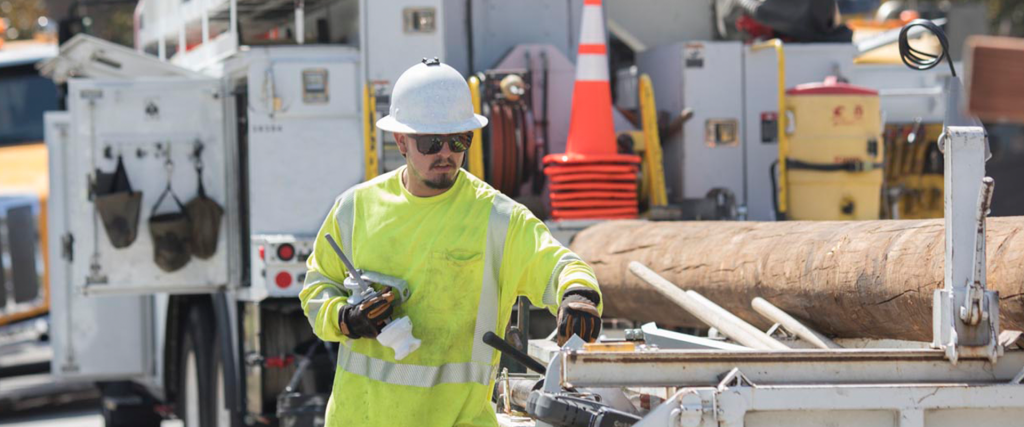We are constantly bombarded by Radio Frequency (RF) waves. They are found everywhere, from public safety to aviation communications, from television remote controls to garage door openers. Without the coordination tools used by the Federal Communications Commission (FCC), all communications would be nothing but static, and your television remote control and garage door opener wouldn’t work.
One such tool is the General Mobile Radio Service (GMRS). What exactly is GMRS for two-way radios, and when do you need a GMRS license? Let’s delve into the world of GMRS licenses and explore how they compare to other FCC licenses.
What Exactly is a GMRS Radio License?
The General Mobile Radio Service (GMRS) is a licensed radio service band regulated (coordinated) by the FCC in the United States. It provides short to medium-distance, two-way radio communication for both personal and business use. The FCC GMRS license provides 30 UHF frequencies (channels) at a maximum 4-watt power output, allowing for clear and reliable communication.
To legally operate a GMRS radio, users must obtain a GMRS license from the FCC. This license allows individuals or organizations to use GMRS frequencies in equipment that meets the FCC’s guidelines.
Do not try to slide by using your GMRS radios without a valid FCC license. Operating a GMRS radio incorrectly or without a license is illegal and can result in hefty fines. So, be sure you have filled out a GMRS license application for your radios.
When Do You Need a GMRS License?
So, when exactly do you need a GMRS License? The answer lies in the purpose and scope of your radio communication needs. Suppose you plan to use GMRS radios for personal or family communication, such as hiking, camping, or coordinating outdoor events, and your radios will operate at under 2 watts of output power. In that case, a GMRS license is not required.
However, a GMRS license is required if you plan to use GMRS radios at 4-5 watts of power for personal or family use. Even if you’re using GMRS radios within your home or neighborhood, a license is still necessary to comply with FCC regulations.
Also, if you’re using GMRS radios for business purposes, such as coordinating work activities or managing a commercial enterprise, a GMRS license is mandatory. Business users must obtain a separate license for each location where GMRS radios will be used.
GMRS License vs. Other FCC Licenses
Now that we understand the importance of a GMRS license, how does it compare to other FCC licenses? Let’s take a closer look:
- GMRS License vs. Family Radio Service (FRS): FRS radios are the radios you frequently find in major retail stores like Walmart and online platforms like Amazon. They are designed to be user-friendly straight out of the packaging and are commonly used for outdoor leisure pursuits such as hunting, hiking, and mountain sports. These radios are usually compact walkie-talkies, offering minimal to no customization options. They operate on 8 GMRS frequencies (channels) at 2 watts maximum output capacity.
- GMRS License vs. Business Radio Service (BRS) License: GMRS and Business Radio Service (BRS) licenses are both used for business communication, but they operate on different frequencies and have distinct licensing requirements. BRS licenses are suitable for larger organizations with more complex communication needs, offering a broader range of frequencies and higher power limits compared to GMRS.
- GMRS License vs. Land Mobile Radio (LMR): While FRS and GMRS radios are good devices that can fill the needs of a lot of consumers, LMR is where you go for the real deal. Land Mobile Radio systems are the crème-de-la-crème of the radio world, falling just short of highly specialized military systems that are not available to the general public. An LMR license affords you use of the low VHF band (30-50 MHznd), high VHF band (150-172 MHz), UHF band (450-470 MHz), as well as the 800 & 900 MHz UHF bands.
- GMRS License vs. Amateur Radio License (HAM License): While both GMRS and Amateur Radio Services (HAM) require licenses, they serve different purposes. In contrast to GMRS operators, HAM radio operators have access to a wider range of frequencies and communication modes, allowing for long-distance communication and experimentation with various technologies.
- GMRS License vs. Citizens Band (CB) Radio: CB radios operate on different frequencies than GMRS and are primarily used for short-distance communication between individuals, such as truck drivers or hobbyists. Unlike GMRS, CB radios do not require a license for operation, but they are subject to specific rules and regulations set by the FCC.
Trust RCS Communications For Your FCC Licensing Needs
RCS Communications has provided Kentucky and Indiana two-way radio services and solutions since 1952. We are proud to be a Motorola Solutions Channel Partner and offer our clients best-in-class Motorola two-way radio and system solutions.
We have the knowledge to provide you with excellent service and support for your FCC Licensing needs. Our FCC experts work closely with you to ensure everything goes smoothly during your FCC application process and beyond. With our help, you’ll have peace of mind knowing that your communications are secure, legal, and reliable at all times.

